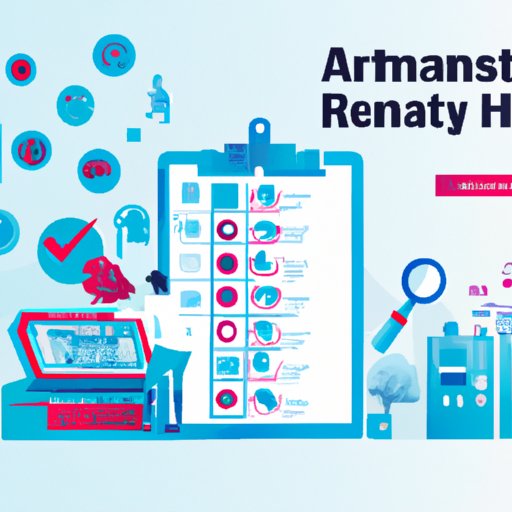Introduction
Health assessment is a process that involves gathering information about an individual’s health status in order to diagnose any potential medical conditions, determine the best course of treatment, and monitor progress over time. Health assessments can include physical exams, blood tests, imaging tests, and psychological assessments. In this article, we will explore the different types of health assessments, the benefits of health assessments, the role of technology in health assessments, and the impact of health assessments on healthcare delivery.

Exploring the Different Types of Health Assessments
Physical exams are an important part of health assessment. During a physical exam, a doctor or nurse will assess a patient’s overall health by looking at their vital signs, such as their blood pressure and heart rate, as well as examining their body for signs of illness or injury. Blood tests are another type of health assessment. Blood tests measure levels of certain substances in the blood, such as cholesterol, glucose, and electrolytes, which can indicate potential health issues. Imaging tests, such as X-rays and MRIs, can be used to create images of the body’s internal organs and structures. Finally, psychological assessments involve tests and interviews that help to assess a person’s mental health.

Examining the Benefits of Health Assessments
Health assessments have many benefits. One of the main benefits is early detection of health issues. By assessing an individual’s health on a regular basis, doctors are able to identify potential problems before they become more serious. This allows them to provide timely intervention and treatment, which can improve patient outcomes and reduce the risk of complications. Health assessments also allow doctors to track an individual’s progress over time, which can provide valuable insights into how their condition is changing.
Investigating the Role of Technology in Health Assessments
Technology has had a major impact on health assessments. Automated testing systems, such as those used for blood tests, are now commonly used in hospitals and clinics. Electronic health records (EHRs) allow doctors to store and access patient data quickly and easily. Remote monitoring systems enable doctors to track a patient’s health from a distance, which can be especially useful for patients who live in remote areas or who are unable to make regular visits to the doctor. All of these technologies have made health assessments faster, easier, and more accurate.

Exploring the Impact of Health Assessments on Healthcare Delivery
Health assessments have had a positive impact on healthcare delivery. Increased access to care is one of the most important benefits. By providing more efficient and accurate health assessments, doctors are able to diagnose and treat patients more quickly. This has resulted in improved quality of care, as well as enhanced coordination of care between different healthcare providers. Health assessments have also enabled doctors to develop more personalized treatments, which can lead to better patient outcomes.
Conclusion
In conclusion, health assessment is a process that involves gathering information about an individual’s health status in order to diagnose any potential medical conditions, determine the best course of treatment, and monitor progress over time. There are several different types of health assessments, including physical exams, blood tests, imaging tests, and psychological assessments. The benefits of health assessments include early detection of health issues, improved patient outcomes, and reduced risk of complications. Technology has played a major role in health assessments, enabling doctors to use automated testing systems, electronic health records, and remote monitoring systems. Finally, health assessments have had a positive impact on healthcare delivery, increasing access to care, improving quality of care, and enhancing coordination of care between different healthcare providers.
(Note: Is this article not meeting your expectations? Do you have knowledge or insights to share? Unlock new opportunities and expand your reach by joining our authors team. Click Registration to join us and share your expertise with our readers.)
